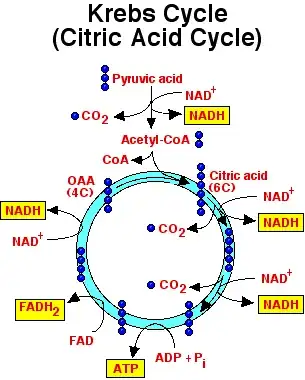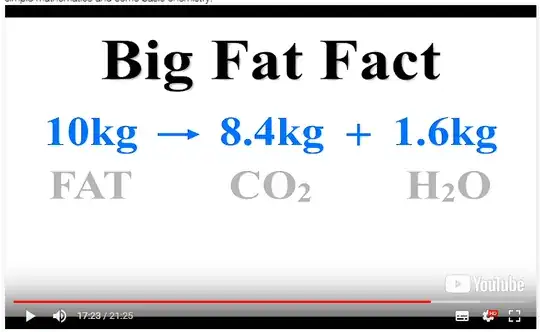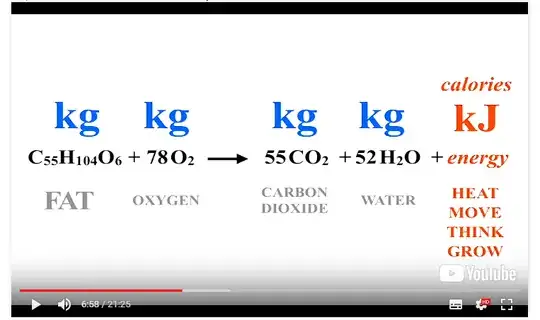Essentially, losing of weight occurs by means of burning fuels precisely like your car does when it burns petrol and emits exhaust gases.
The only difference is that for humans that fuel is to be found in the form of sugars. The fat is what you want to get ultimately rid off, of course, but sugars are more easily processed and so this is what you are removing first.
The basic aerobic cycle is the Krebs cycle.

But to reach it first, glucose needs to be broken down first to pyruvate (by an anaerobic process of glycolysis) and then to acetyl-CoA. One can gain some energy from this reduction but not much. The real energy is hiding in the actual Krebs cycle but for it one needs (besides lots of other stuff) the mentioned acetyl-CoA and oxygen (this explains why you don't get enough energy when not breathing properly) producing the carbon dioxide and some energy that is stored in the $ATP$ (adenosine-triphosphate) and transported to wherever it is needed inside the cell (you are mostly interested in muscle contractions performed by muscle cells). So, you'll burn whatever amount of sugar you have ready in the body. You'll also lose carbon (initially stored in the glucose) by exhaling in the form of $CO_2$. There is also additional hydrogen produced and carried away in the form of $NADH$ and $FADH_2$. It's hard to estimate where it will end up though, as it is (similarly to $ATP$) used all over the organism.
Now, the body is not storing sugars in the form of glucose. Instead, they are stored as a glycogen (mainly in liver and muscles) which is a polysaccharide similar to starch. This is then quickly broken down to glucose as needed. But the body can keep only a small amount of glycogen (corresponding roughly to an hour of running, depending on one's fitness).
There is another form of storage of sugar. Body can convert it to fat. This is done when there is already enough glycogen in the organism. The body fat can then be reduced to acetyl-CoA (by lipolyses and then by beta oxidation), but this requires a lot more oxygen and so is not used when glycogen is at the disposal. But with regular exercise body can be trained to also burn greater proportion of fats than glycogen (this is of course necessary for long-range runners and cyclists because there is no way they would get enough energy just from glycogen).
To get a rough idea about the amount of mass you'll burn, read the calories content of some food. Sugar has something like 4kCal for 1g and fat 9kCal for 1g. One hour of running corresponds to something like 700kCal so if you are burning 50% sugars and 50% fat you'll be 100g lighter. All of these numbers are just very rough estimates depending on what kind of exercise you do and the general state of your body.
Note that you'll also lose lots of water and minerals during the exercise. But I am not counting this to the mass balance as you need to replenish those in order to be healthy. Also, gradually some muscles will form, so this will actually add weight.



